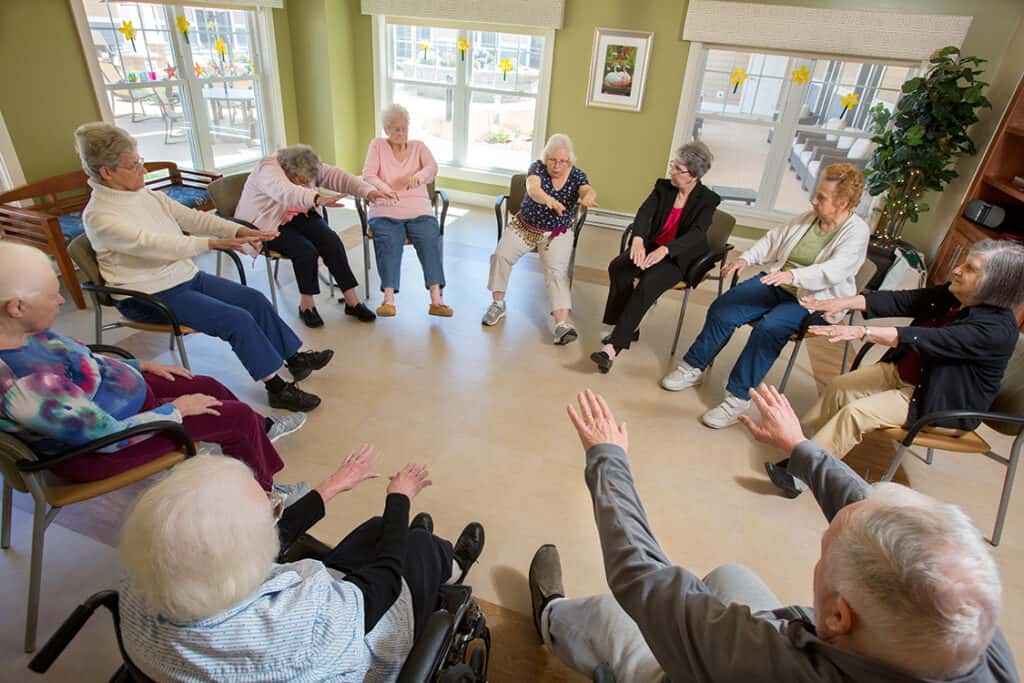Making the Change to Assisted Living: A Guide for Households
Browsing the transition to helped living can be a complex and emotional journey for households as they look for the best treatment and assistance for their enjoyed ones. With various factors to consider, from recognizing the advantages of assisted living to picking the appropriate center that straightens with individual demands, families often discover themselves at a crossroads of choices that can influence their enjoyed one's lifestyle. As families begin on this path, it is essential to approach each action with careful consideration and prep work. Throughout this overview, we will explore crucial elements of transitioning to assisted living, supplying strategies and insights to help family members navigate this important stage with clarity and self-confidence.

Comprehending Helped Living Benefits
Recognizing the benefits of assisted living involves taking a look at the comprehensive treatment and support offered to homeowners in a caring and expert setting. Aided living centers provide a range of solutions customized to meet the private demands of homeowners. From aid with tasks of daily living such as showering, dressing, and medicine administration to housekeeping, dish prep work, and transport services, citizens take advantage of a supportive neighborhood that advertises their independence and wellness.
One trick advantage of assisted living is the opportunity for social engagement and interaction with peers. Homeowners have actually access to prepared activities, outings, and occasions that foster a feeling of area and battle feelings of seclusion. Furthermore, the 24-hour assistance offered by trained staff guarantees that aid is always offered when required, supplying tranquility of mind to both residents and their families.
Furthermore, aided living centers usually have healthcare solutions on-site or have arrangements with health care companies, making sure punctual clinical focus and surveillance of locals' wellness conditions. This aggressive strategy to healthcare administration adds to locals' general health and high quality of life in a secure and secure atmosphere.
Assessing Care Choices and requirements
When taking into consideration transitioning to aided living, an important action is examining the treatment needs and offered options for your liked one. Begin by evaluating your enjoyed one's day-to-day living tasks, such as bathing, clothing, drug monitoring, and dish preparation.
As soon as you have a clear understanding of your liked one's care needs, discover the various assisted living choices readily available. Research centers that provide the level of treatment needed, whether it's independent living, assisted living, memory care, or proficient nursing.
Consulting with health care professionals, social workers, and financial experts can provide beneficial insight and support in analyzing treatment requirements and discovering the best options for your enjoyed one's change to assisted living.
Choosing the Right Facility
After reviewing your loved one's care requirements and exploring the readily available assisted living alternatives, the following important action is picking the most suitable facility for their certain needs. Charlotte Alzheimer's care. When selecting the ideal facility, it is Charlotte Alzheimer's care vital to think about numerous vital elements to make certain that your enjoyed one receives the care and support they need. Begin by examining the location of the facility. Proximity to member of the family, medical care suppliers, and services can considerably impact your loved one's quality of life and convenience of visitation.
Additionally, assess the solutions and services supplied by each facility. Think about elements such as dish alternatives, housekeeping services, entertainment activities, and transportation schedule. Make sure that the center can deal with your loved one's details clinical and personal treatment demands, such as drug management, flexibility help, and specialized memory treatment.
In addition, assess the staff-to-resident ratio and the qualifications of the caretakers. Sufficient staffing levels and trained, caring staff are crucial for giving personalized treatment and ensuring your enjoyed one's security and health. Trip the centers you are considering to obtain a feeling for the atmosphere, cleanliness, and total atmosphere, enabling you to make an educated choice based on firsthand monitorings.
Planning For the Change
To ensure a comfortable and seamless transition for your enjoyed one into assisted living, precise planning and open communication among all involved parties are vital. Visit potential centers with each other to assess their suitability and involve your enjoyed one in the decision-making procedure.
Develop an in-depth relocating strategy that includes sorting personal belongings, loading basics, and collaborating logistics. Downsizing may be required, so involve your loved one in determining what items to keep, donate, or pass on to member of the family.
Interact freely with the staff at the nursing home about your loved one's preferences, regimens, and needs. This will certainly help the staff provide individualized care and assistance from day one. Be client and understanding throughout this change period, as it might take time for your loved one to readjust to their new atmosphere.

Supporting Psychological Wellness
Browsing the emotional landscape of relocating a liked one to assisted living needs a nuanced method that prioritizes their health and sense of belonging. The change to assisted living can stimulate a range of feelings for both the senior and their household participants. It is important to recognize and deal with these sensations to guarantee a smooth change.
To support psychological health during this transition, sincere and open communication is essential. Urge your loved one to share their thoughts and sensations concerning the relocation, and pay attention empathetically to their concerns. Verify their feelings and supply reassurance that their sensations are normal and reasonable.
Furthermore, maintaining familiar routines and items can provide convenience and a feeling of continuity. Customizing their home with valued items from home can assist develop a comforting and familiar setting in their new residence.
Finally, staying linked with loved ones members, joining area tasks, and involving in leisure activities can cultivate a feeling of belonging and social link, which are important for emotional wellness in assisted living (Senior Assisted Living). By focusing on psychological support and understanding, families can help their enjoyed ones browse this change with better ease and resilience
Final Thought
Finally, families navigating the change to helped living should thoroughly consider the benefits, evaluate treatment requirements, select the ideal facility, and prepare for the step. Sustaining emotional health throughout this process is crucial for an effective shift. By taking these steps and prioritizing the health of their liked ones, families can make certain a smooth and favorable transition to helped living.
Browsing the shift to aided living can be a complicated and psychological trip for households as they look for the best treatment and support for their liked ones.When thinking about transitioning to aided living, an important action is assessing the treatment needs and available alternatives for your loved one.When you have a clear understanding of your enjoyed one's care demands, explore the various assisted living choices readily available. Memory care Charlotte.After assessing your liked one's treatment demands and exploring the offered assisted living choices, the following vital action is picking the most suitable facility for their certain needs. By taking these steps and prioritizing the wellness of their liked ones, family members can guarantee a positive and smooth transition to helped living